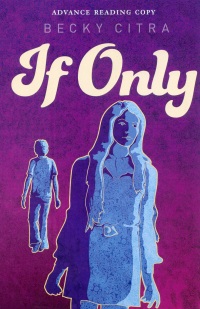| ________________
CM . . .
. Volume XX Number 5. . . .October 4, 2013
excerpt:
Pam, 15, is trying to join the popular crowd at her small town high school in the 1960s. In fact, she is changing out of the fashionable outfit that her father wonít allow her to wear when she and her twin brother are held up at knife-point on a trail near their house. Their assailant tells Danny to keep away and no one will get hurt as he tries to molest Pam. A neighbour arrives in time to scare away the attacker before the assault becomes worse, but Pam is devastated by her ordeal. Her dad blames her for wearing revealing clothes, and he blames Danny for failing to fight back. Suddenly, their family is in crisis. Eventually, Pam meets new friends who value her for who she is and allow her to get over her trauma. And Danny becomes closer to his sister and forgives himself for being scared. The traumatic incident which propels this story happens on page ten. There is no slow build-up or long introduction which is very refreshingly. As the narrative progresses, the reader is able to discover more about the characters and the details of their lives through their reactions to the shocking event and how it changes them. The novel is a study in recovery and how a family struggles to come together in a time of difficulty, especially in an era when talking about these issues was discouraged. It is rewarding to see how each character reacts as readers get more and more insight into their personalities. It is an unusual choice to tell this story in alternating points of view where one is in the first person and one is in the third person. There are certainly reasons to attempt such an experiment, and some aspects of it work. But Dannyís third person narration often works against itself and would have felt much more natural if Danny had told his story directly. His third person voice always seems slightly forced whereas Pamís voice is strong and natural. If Only takes place in the 1960s in the sort of small town which had not changed with the times. There are interesting reasons to set the story at this time Ė the main one being that sexual assault and violence against women and girls were taboo subjects, and there was little dialogue around them in mainstream society. Most women felt shame at being targeted, and society encouraged that by blaming the victim (as Pamís dad does initially). Pam skips school for days because she canít imagine facing the other kids who will gossip about her and judge her as if she has done something wrong. Her attacker is at large because other girls were too embarrassed to report what had happened to them. And even if a girl had reported such a thing, there was a good chance she would not have been believed or taken seriously. So this is a story about how girls at this time dealt with these prejudices but found ways to empower themselves. Another important reason for the period setting is that it allows an exploration of ideas about masculinity. The big question for Danny is why he didnít try to defend his sister, an expectation of a certain kind of ďmanlinessĒ which might be different in the present day. Strict gender roles are expected by this community, and it makes things harder for all of the characters. There are few touches which seemed over the top, mainly the visit from Dannyís best friendís brother who has become a hippie while going to college in California. He rolls up in a van with pot and free love, and Danny finds his lifestyle appealing. Family relationships are at the heart of this novel. Pam and Dannyís dad is off work after an accident, and he is obviously frustrated and unhappy at having his role taken away from him. He is not a supportive father, but he, himself, is dealing with the death of his mother and his own fatherís decline. Danny yearns to go back to their family farm, but he has to accept that his grandfather canít leave the care facility and that life has changed for all of them. He is finally able to talk to his dad and grandfather about danger and fear and understand that there are many ways to be a hero. Most of the story is notably undramatic with the action being psychological rather than physical. Nevertheless, If Only is an entertaining and compelling read. The prose is deft and clean, and the development of the appealing characters unfolds seamlessly. The pace can be somewhat hypnotic at times, and, in the end, the modest threads of the story come together to form a very well-crafted big picture. Recommended. Kris Rothstein is a childrenís book agent and reviewer in Vancouver, BC.
To comment
on this title or this review, send mail to cm@umanitoba.ca.
Copyright © the Manitoba Library Association. Reproduction for personal
use is permitted only if this copyright notice is maintained. Any
other reproduction is prohibited without permission.
NEXT REVIEW |
TABLE OF CONTENTS FOR THIS ISSUE
- October 4, 2013.
AUTHORS |
TITLES |
MEDIA REVIEWS |
PROFILES |
BACK ISSUES |
SEARCH |
CMARCHIVE |
HOME |
